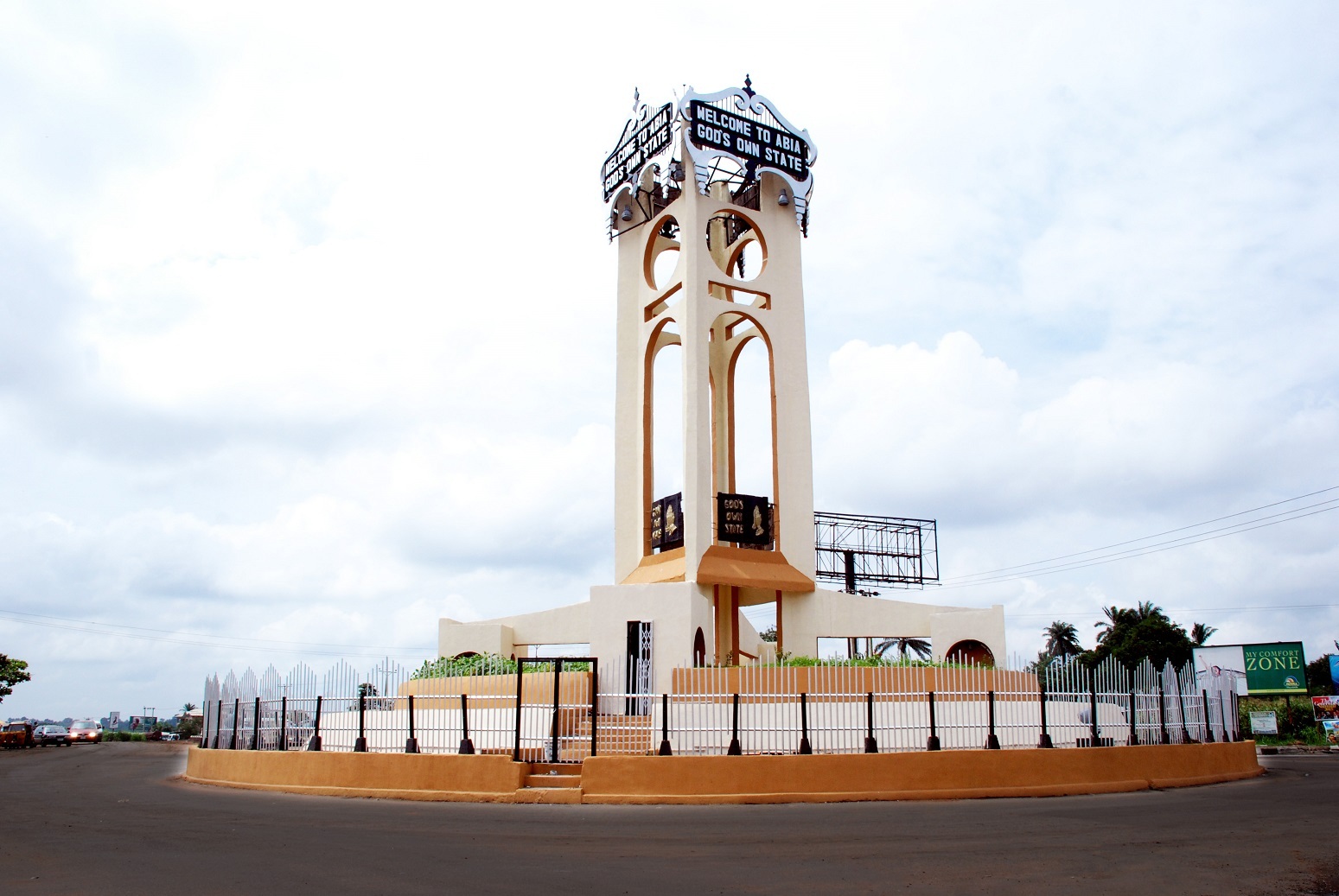Brief History
Abia State (Igbo: Ȯra Abia) is a state in the South-East geopolitical zone of Nigeria, bordered to the north and northeast by the states of Anambra, Enugu, and Ebonyi, Imo State to the west, Cross River State to the east, Akwa Ibom State to the southeast, and Rivers State to the south. It takes its name from the acronym for four of the state’s most populated regions: Aba, Bende, Isuikwuato, and Afikpo. The state capital is Umuahia while the largest city and commercial centre is Aba.
Of the 36 states, Abia is the 32nd largest in area and 27th most populous with an estimated population
of over 3,720,000 as of 2016. Geographically, the state is divided between the Niger Delta swamp
forests in the far south and the drier Cross–Niger transition forests with some savanna in the rest of the
state. Other important geographical features are the Imo and Aba Rivers, which flow along the Abia’s
western and southern borders, respectively.
Festivals and Traditions
- IWAJI FESTIVAL (NEW YAM FESTIVAL): It is celebrated in thanksgiving to the gods for a good harvest. It is usually held at the end of the rainy season in early August. The New Yam Festival is indeed a colourful event which is fast becoming a major tourist attraction.. The New yam festival is celebrated throughout Igbo land and its usually accompanied with cultural music and dance, wrestling, masquerade display etc.
- EKPE FESTIVAL: Ekpe festival is a masquerade festival celebrate mainly by the igbos of abia sate, river state and nkanu people of enugu state. unlike the mmanwu festival which is the gathering of tens and thousands of different masquerades, this masquerade festival particularly celebrates the Ekpe masquerades. Ekpe festival is a lively cultural festival that attracts people from in and outside the state. The Ekpe festival has existed for millenniums and involves so many kinds of Ekpe masquerades performing different kinds of cultural dance. Here, male and female (old and young) dress in their cultural attire, the male must tie a piece of George (wrapper) to make up for the cultural attire. Male children who have been initiated into Ekpe masquerade, and are skilled in playing the cultural music, show their expertise in their culture while the masquerade performs the dancing. People appreciate the performances of the masquerade, players and other individual dancers by donating money to them while the music is on.
- IKORO FESTIVAL ( A DANCE FOR NOBLES):The Ikoro Festival is an annual festival celebrated by the Ndoki people.It is a time when the people gather to thank the Almighty Chineke for fertility and bountiful harvest the previous farming season as well as pray for a greater yield in the current farming season. That is why the Ikoro Festival precedes every years farming activities. However, over the years the Ikoro Festival has metamorphosed to very big festival to attract both national and international attention. The festival attracts tourists from within and outside the country to the Blue River City of Azumini.Apart from being a tourists attraction the Ikoro dance is considered a dance exclusively for nobles. This is giving the different rhythms of the Ikoro beats. For instance there is a popular Ikoro song that says: “mbiarambiaamaghiIkoro…” (meaning a novice does not understand the value of Ikoro).
Tourists Attractions and Locations
- The Azumini Blue River
- The National War Museum
- Arochukwu Juju Shrine of Arochukwu
- The Arochukwu Cave
- National Gallery of Art, Umuahia
- Amanagwu
- National Museum of Colonial History, Aba

